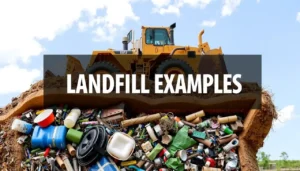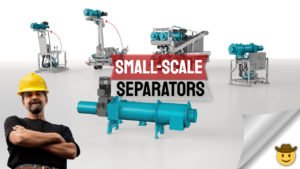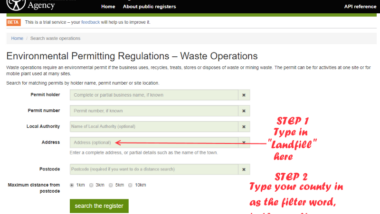Residents who carry out small house improvement projects should use construction waste containers to collect and store the construction waste and general garbage generated by decorating their houses.

These are better than small waste skips for small amounts of waste, as you can buy them and avoid the hire charges. Pile them to the designated fill-height, and then order a waste pick-up contractor to drive the segregated waste away to a suitable construction waste transfer station. This should provide the easiest method for residents to manage their construction waste.
Any company or individual who does not deal responsibly with the construction waste according to the regulations may be caught and fined heavily. For residents to observe the regulations about construction waste disposal is essential so that the urban construction waste management can be successful, and the city's environmental sanitation can be ensured.
Container capacities range from 8 to 20 m³ and each type of container has a different transport price. Load height upon loading must not exceed the height of sidewalls, installation of additional extensions is not allowed. Each load must be prepared so it can be transported safely, and each container only filled to the allocated depth.
If you’re in need of a construction waste container to safely store construction garbage, you can rent durable construction waste containers from many waste disposal companies.
Container Rental
Most construction waste containers are rented.
Most Waste Management companies offer quality construction waste containers that are able to handle the demolition waste that a construction site produces.
Most Popular Types of Waste Containers
Metal construction waste containers (often known as skips) are commonly available in the following types:
Hook lift roll off containers, (Ampliroll, Multilift, Stellar, Palfinger, Swaploader and other styles.)
Cable pull roll off containers, Dempster, or dual purpose roll off bins. The roll off/ lift off etc., type of containers can be used as waste containers for garbage disposal, or recycling containers, and also as construction waste containers. etc. This type is useful for the larger waste volumes a homeowner may generate on their large house improvement projects such as room extensions, roofing replacements, etc.
The US Term for Waste Containers is “Construction Dumpsters”
The versatility of US style construction dumpsters makes them perfect for many common projects, including roofing, landscaping, demolition and heavy debris removal.
Quick deliveries and prompt pickups helps site managers keep construction sites clear of debris efficiently. A clean site is essential for site safety. Regular trash removal avoids slowdowns due to debris obstructing work areas, and is essential for safe working. Whether your team is building up or tearing down, there will be a dumpster for your construction waste that will help you keep the amount of old materials, and packaging trash, in check.
Waste Pre-sorting On-site
Materials may be sorted into a number of containers provided by service companies that specialize in management of specific types of waste at the jobsite. Generally the least number of containers is desirable both to keep container volumes high to reduce transportation trips and costs, and to keep the jobsite clear of obstructions.
Containers containing construction and demolition waste are collected and transported to diversion facilities via truck. Light and medium duty trucks are most commonly used for this purpose in the US and Canada. Trucks and containers of various types are mated to allow for maneuverability and modular interoperability.
Identification of loads on arrival at construction and demolition debris diversion facilities is an important step in ensuring materials are appropriately handled. Facility management plans typically describe materials that can be accepted. Loads which contain materials that are not accepted may be turned away, in which case the materials likely will be disposed in a sanitary landfill. via www.wbdg.org
You would potentially also benefit from reading our page on Construction Waste here.
Landfill Examples – Designs and Operation
Modern sanitary landfills integrate engineered systems for environmental protection, while bioreactor landfills boost waste decomposition for energy. Specialized secure landfills use double-liner systems for safety. Effective landfill designs maximise capacity via strategic materials and techniques, with advanced monitoring technologies ensuring compliance and sustainability. Discover fascinating landfill examples…
The Problem of Expansive Soils
The Problem of Expansive Soils: When building or buying a new house, property owners usually obsess over style, furniture, gardens, pools – but they can forget one critical factor: the soil. Expansive soils can cause damage to buildings. Research has shown that one in four houses in the US has been somehow affected by this. […]
Small-Scale Separators for Dairy Farms and AD Plants
New Small-Scale Separator is Big on Results Following the success of its acclaimed Separators since their launch in 2016, Borger has released a new, affordable, 25 m³/h model, suitable for dairy farmers with herds of up to 150 – and for small-scale biogas operators. The launch of this compact new Bioselect RC 25 Small-Scale Slurry Separators (which […]
The Skip Hire Operator's Duty of Care (UK) – Updated Legal Framework
Skip Hire operator's Duty of Care (UK) requirements for Skip Hire Service Companies are poorly understood by the public and even by some skip hire companies and other waste transport operators. Why the UK's Duty of Care Regulations Were Introduced for the Transport Sector Most nations suffer fly-tipping problems and the UK response has been […]








My uncle is thinking about starting a project that will get rid of a lot of junk. It could be really nice for him to rent a container to get rid of the junk. Thanks for the tips about how most companies will be able to handle the waste that the project produces.
Where can I buy in India :
Hook lift roll off containers, (Ampliroll, Multilift, Stellar, Palfinger, Swaploader and other styles.)
Cable pull roll off containers, Dempster, or dual purpose roll off bins. The roll off/ lift off etc., type of containers can be used as waste containers for